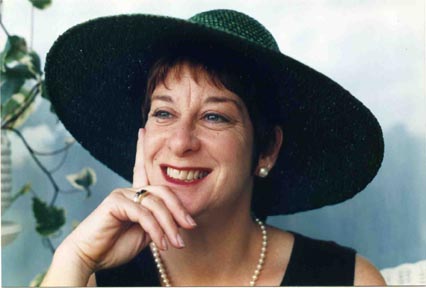
In a departure from my journaling about my life, my love and my recent loss, I have decided to post a bookreview I made during Martijn's illness. It is about two themes I respect: Reflective Leadership and, believe it or not, Harry Potter. I also just posted this on Amazon's site as a review. It should appear in about two days from today.

Potter's Real Power: Reflective Leadership
by Susan SchaeferMarch 11, 2009
The seventh installment of the Harry Potter phenomenon, Harry Potter and the Deathly Hallows has been documented, dissected, discussed, and dis'd in print, online and on the airways. Never was a book so eagerly anticipated nor so widely read. Its readership cuts across generation, gender and geography. From lofty literary reviewers to adolescent blogs, the adventures of Harry and his fellowship have undergone as serious scrutiny as the spread of avian flu. Their creator, J.K. Rowling, has been equally examined with the ferocity and frenzy worthy of a life-threatening pandemic.
And deservedly so; Rowling’s accomplishment warrants the exposure and limelight. After its release in summer of 2007, real world "Muggle" coverage of war, famine, floods and random violence returned soon enough. I found it satisfying that the stir of a book had the power to whisk the war in Iraq, the primary election campaigns in America, the floods in Britain, the fires in southern Europe, and global terrorism off our minds, albeit for a brief summer respite. Now in spite of in America’s new leadership, newer crises are taking center stage. Perhaps President Obama, and his EU colleagues, Prime Minister Brown, President Sarkozy and Prime Minister Merkel, along with other world leaders can still learn a lesson from the boy wizard...
While multiple themes thread throughout the Potter series, this final volume touches on a noble topic: Harry’s ultimate feat is attainment of collaborative, reflective leadership.
For thousands of years mythology has focused on sole heroes attaining supreme power: "Divine right" backed by divine might; one absolute hero vanquishing or vanquished by one clear villain. From Beowulf to Batman, heroes act alone and conquer evil. America’s past zealous administration sought to obliterate "evil empires". The message was dominate or be dominated. China seems still caught in this futile web.
As the globalized world struggles with the need for multilateral cooperation, the concept of shared leadership has advanced. Harvard University has produced, Getting to Yes, and scholar Joseph Nye, who defines soft power "as the ability to get what you want by attracting and persuading others to adopt your goals." Riane Eisler, author of the stunning, Chalice and the Blade, and more recent, The Real Wealth of Nations, urges modern authors to rewrite stories that perpetuate the domination legends, replacing them with partnership myths. Knowingly or not, J.K. Rowling has taken an influential step in this direction.
Although her portrayal of Lord Voldermort falls under the prototypical arch villain mold, Rowling counterpoints this caricature by crafting Harry’s development as a reflective, indeed reluctant leader. Barbara Crosby, of the Reflective Leadership Center at the University of Minnesota's Humphrey Institute, and many of her colleagues in the field, define leadership as "the inspiration and mobilization of others to undertake collective action in pursuit of the common good."
While themes of love, friendship, trust and loyalty fly like broomsticks throughout the Potter opus, in the end, the "pursuit of the common good" theme emerges prominently. And, the conceit isn’t overly simplified. Harry and other characters question what constitutes "common good." Teenage Harry’s reflective abilities are toughened when he learns that his mentor and hero, Dumbledore, may have been misguided in his own youthful understanding of this concept. Harry must not only grasp the nuances of Dumbledore’s transgressions, but also forgive them.
This ability to expose fallibility and forgiveness in lead characters, particularly in Harry, renders Deathly Hallows as more than a traditional fantasy morality tale. Rowling encourages readers to think critically about what makes Harry a hero, what influences his choices.
The parting 17-year-old Harry Potter is imbued with a finer capacity than sword or wand play or sheer magical attainment. Throughout the series he has fiercely sought truth; in this final quest he gains a most valuable ability – understanding and self-knowledge.
In 1997 scholars Begley and Jacobs wrote that: "Leadership is the process of maximizing the capability of people to fulfill purpose through the development of character." J.K. Rowling has succeeded in casting the Harry Potter series as an extended bildungsroman. Harry Potter the boy undergoes the requisite conflicts between his needs and those of the society around him. He emerges as a more modern hero.
When Harry chooses collaboration over his past preferred isolation to guide his choices he advances his goals. He comes to understand and accept his own and others’ limitations. Harry overcomes his former wavering ability to trust others. In this final episode, Rowling masterfully releases Potter to his potential as "a first among equals" - a prima inter pares, thereby producing the ripple effect of allowing others to lead. In fact, another ultimately wields the hero’s sword – it is an ally, not a solitary hero, who literally slays the dragon, well, snake. Harry Potter triumphs through partnership. This is the real power of Potter. And we hope, of the new free world leaders.
-The End-

No comments:
Post a Comment